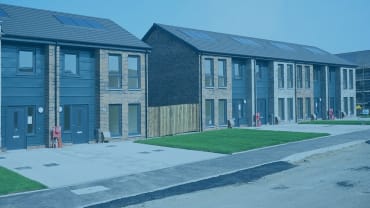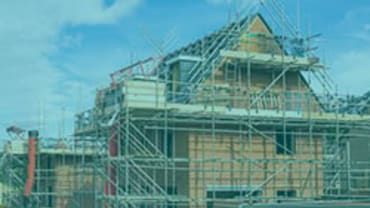Since 2010, the Consumer Code for Home Builders has set mandatory requirements that housebuilders must meet in the marketing and selling of new homes, as well as in their after-sales customer service. However, a new independent body, The New Homes Quality Board, recently published the New Homes Quality Code which is expected to become the comprehensive industry code of practice.
Let's look at some of the similarities and differences between the Consumer Code and the New Homes Quality Code.
The Consumer Code
The Consumer Code applies to new homes built by developers that are registered with the UK's main new home warranty bodies: NHBC, Premier Guarantee, LABC Warranty and Checkmate. These four warranty bodies represent over 95% of the new homes built in the UK by around 16,000 builders.
A copy of the Consumer Code can be found here.
The New Homes Quality Board and New Homes Quality Code
The New Homes Quality Board was launched in February 2021, with a board comprising representatives from across the sector, including consumer bodies. It aims to "deliver a step change in how the house building industry operates and deals with customers".
An important part of the NHQB's remit is the creation of the New Homes Quality Code, intended to consolidate and improve upon the existing protections that are available to purchasers of new build homes.
Following a consultation process, the NHQB published the New Homes Quality Code in December 2021. A copy of the Code is available to read online.
What are the similarities between the two codes?
Many of the requirements in the New Homes Quality Code are broadly equivalent to the existing requirements in the Consumer Code. For instance:
- Customers must be given suitable and relevant pre-contract information to enable them to make informed purchasing decisions, including a list of the home's contents, an explanation of the home warranty cover and information relating to the standards to which the home is being built;
- The terms of missives must be clear, fair and comply with all relevant legislation; and
- Housebuilders must provide a comprehensive and accessible after-sales service, and ensure that customers understand what the service includes and how it can be accessed.
What are the differences?
The New Homes Quality Code contains a number of additional requirements that don't feature in the existing Consumer Code. Notable examples include:
- Specific prohibitions on certain high-pressure selling techniques, such as offering a financial incentive for an immediate decision on a reservation or suggesting that a sale may not proceed unless a purchaser uses a specified third-party professional advisor such as a conveyancer or mortgage broker;
- Restrictions on 'early bird' arrangements, where customers (sometimes in return for a fee) are offered an exclusive opportunity to reserve a plot before it is released for general sale;and
- Housebuilders must allow customers to use a professional to carry out a pre-completion inspection of their home on their behalf.
One other difference between the codes is in relation to complaints. Unlike the Consumer Code, the New Homes Quality Code sets out a 56-day complaints process, which housebuilders must follow when responding to complaints from customers.
Where the complaints process fails to resolve the issue, customers will still have recourse to an independent dispute resolution service. Under the New Homes Quality Code, however, this will take the form of a New Homes Ombudsman, who will be tasked with adjudicating on disputes between builders and consumers.
What does this mean for housebuilders?
The New Homes Quality Code and New Homes Ombudsman Scheme are currently voluntary for housebuilders. It is anticipated, however, that registration to the Code and/or Ombudsman Scheme may become mandatory in the future - the Building Safety Act makes provision for the Secretary of State for Housing to require all developers to be members of the Ombudsman Scheme.
With that in mind, housebuilders – even those who are not intending to sign up to the New Homes Quality Code immediately – may wish to start considering whether they will need to make any changes to their current processes, including their standard missives and complaints procedures, to meet the requirements of the new Code and the Ombudsman Scheme.
For more information about the New Homes Quality Code and what it means for consumers and builders alike, listen to our firm's Housebuilding Conversations session with Elaine Farquharson-Black and Charles Hay from our housebuilding team and Deputy Chair of the NHQC, Douglas Cochrane.
Contributors
Partner
Associate













